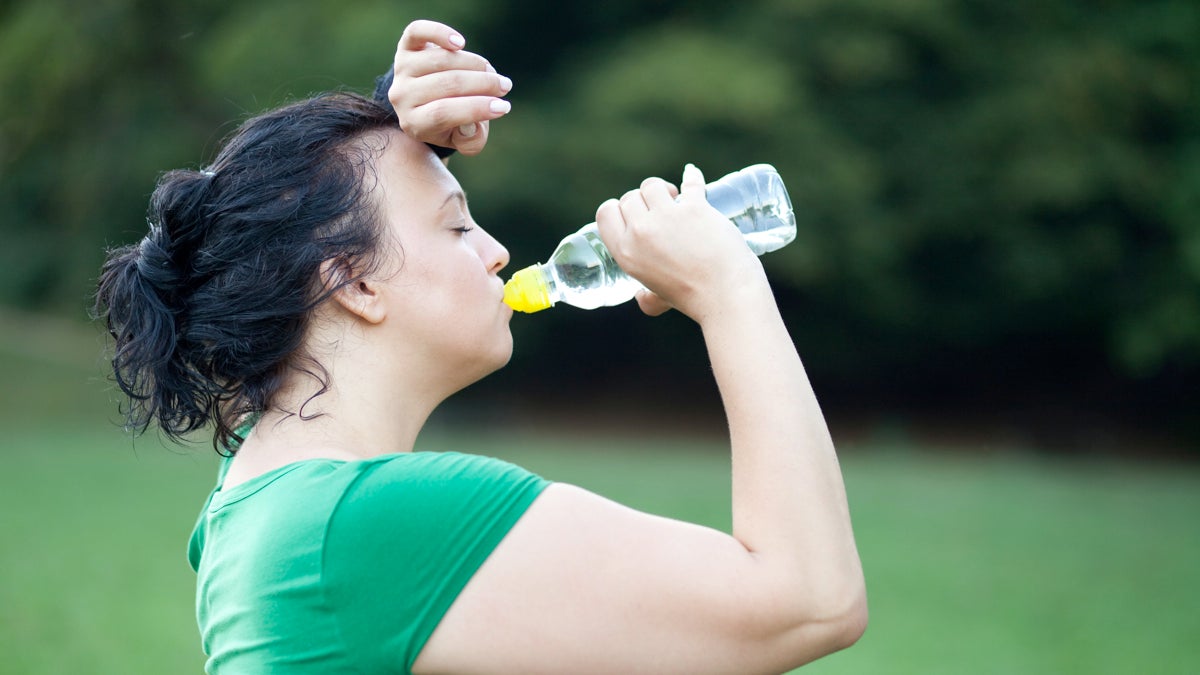Extreme heat packs humid punch in highest heat index of summer
 Photo via ShutterStock) " title="sweaty woman" width="1" height="1"/>
Photo via ShutterStock) " title="sweaty woman" width="1" height="1"/>
(Photo via ShutterStock)
High temperatures across New Jersey and southeastern Pennsylvania triggered excessive heat warnings and advisories Sunday through Monday evening as officials warned residents to limit time outdoors, stay hydrated, and check on elderly neighbors.
When factoring in the humidity, it felt like 100 to 105 degrees in the greater Philadelphia area on both days.
“These are the highest heat indexes that we’ve experienced so far this summer,” said Kristin Kline of the National Weather Service in Mount Holly, New Jersey.
More of the same is expected for Tuesday with a high around 93 degrees.
Ninety-degree temperatures are stifling enough on their own, but the added humidity is especially problematic because it cripples the body’s natural cooling system: sweating.
“The water on the skin has to be heated up enough so that it evaporates,” said Herbert Cushing, Temple University Hospital’s chief medical officer. “In doing that, the heat is transferred to the water that’s lost and the skin that’s left behind stays cool. It’s kind of like how a radiator works.”
But that biological radiator doesn’t function as well when the air is already full of moisture. As the core body temperature rises, heat exhaustion and heat stroke become very real possibilities.
Chief of emergency medicine at Penn Presbyterian, John Flamma, said no one — not even well-conditioned athletes — should exercise outside on days such as these.
“Sometimes it’s almost impossible just to keep up with the fluids that you’re going to lose,” he said. “You’ll eventually get behind the eight-ball, and sometimes you won’t be able to recover.”
Elderly people, who often are on medications that can exacerbate the heat or don’t have access to air conditioning, are also at risk, he said.
On Monday, Penn Presbyterian had not yet seen an uptick in heat-related cases, but Temple had, including some patients with congestive heart failure. Paradoxically, Cushing said, those patients have to be on alert for over-hydrating because excess fluid in the body is more easily retained and can worsen the condition.
Fortunately, the end is near. The National Weather Service predicts a cold front, making conditions more comfortable by Wednesday.
“It’s just going to be a breath of fresh air across the region,” said Kline. “High temperatures should be more in the middle 80s and the humidity will be far less.”
WHYY is your source for fact-based, in-depth journalism and information. As a nonprofit organization, we rely on financial support from readers like you. Please give today.

